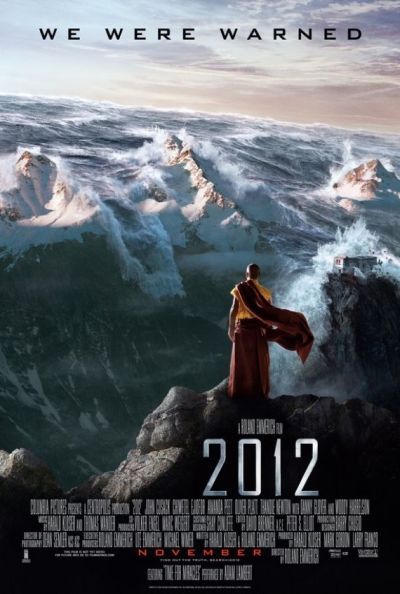NASA on crusade to debunk 2012 apocalypse myths

Your support helps us to tell the story
This election is still a dead heat, according to most polls. In a fight with such wafer-thin margins, we need reporters on the ground talking to the people Trump and Harris are courting. Your support allows us to keep sending journalists to the story.
The Independent is trusted by 27 million Americans from across the entire political spectrum every month. Unlike many other quality news outlets, we choose not to lock you out of our reporting and analysis with paywalls. But quality journalism must still be paid for.
Help us keep bring these critical stories to light. Your support makes all the difference.
The world is not coming to an end on December 21, 2012, the US space agency insisted Monday in a rare campaign to dispel widespread rumors fueled by the Internet and a new Hollywood movie.
The latest big screen offering from Sony Picture, "2012," arrives in theaters on Friday, with a 200-million-dollar production about the end of the world supposedly based on myths backed by the Mayan calendar.
The doomsday scenario revolves around claims that the end of time will come as an obscure Planet X - or Nibiru - heads toward or collides with Earth.
The mysterious planet was supposedly discovered by the Sumerians, according to claims by pseudo-scientists, paranormal activity enthusiasts and Internet theorists.
Some websites accuse NASA of concealing the truth on the wayward planet's existence, but the US space agency denounced such stories as an "Internet hoax."
"There is no factual basis for these claims," NASA said in a question-and-answer posting on its website.
If such a collision were real "astronomers would have been tracking it for at least the past decade, and it would be visible by now to the naked eye," it added. "Obviously, it does not exist."
"Credible scientists worldwide know of no threat associated with 2012," it insisted.
After all, "our planet has been getting along just fine for more than four billion years," added NASA.
There is another planet, Eris, floating in space. But the dwarf planet similar to Pluto will remain safely lodged in the outer solar system and it can come no closer than four billion miles (6.4 billion kilometers) to Earth, according to NASA.

Watch Apple TV+ free for 7 days
New subscribers only. £8.99/mo. after free trial. Plan auto-renews until cancelled

Watch Apple TV+ free for 7 days
New subscribers only. £8.99/mo. after free trial. Plan auto-renews until cancelled
Scores of Internet postings and books delve into the supposed disaster, including "Apocalypse 2012" and "How to Survive 2012."
Initial theories set the disaster for May 2003, but when nothing happened the date was moved forward to the winter solstice in 2012 to coincide with the end of a cycle of the ancient Mayan calendar.
NASA insisted the Mayan calendar in fact does not end on December 21, 2012, as another period begins immediately afterward. And it said there are no planetary alignments on the horizon for the next few decades.
And even if the planets were to line up as some have forecast, the effect on our planet would be "negligible," NASA said.
Among the other theories NASA has set out to debunk are that geomagnetic storms, a pole reversal or unsteadiness in the Earth's crustal plates might befall the planet.
For example, some myths claim the Earth's rotation and magnetic polarity are related, with a magnetic reversal taking place about every 400,000 years.
"As far as we know, such a magnetic reversal doesn't cause any harm to life on Earth," and a reversal in Earth's rotation is "impossible," NASA reassured, adding that a magnetic reversal is "very unlikely" to occur in the next few millenia.
And while comets and asteroids have always hit the Earth, "big hits are very rare," NASA noted. The last major impact was believed to be 65 million years ago, spurring the end of dinosaurs.
"We have already determined that there are no threatening asteroids as large as the one that killed the dinosaurs," the space agency said.
Join our commenting forum
Join thought-provoking conversations, follow other Independent readers and see their replies
Comments